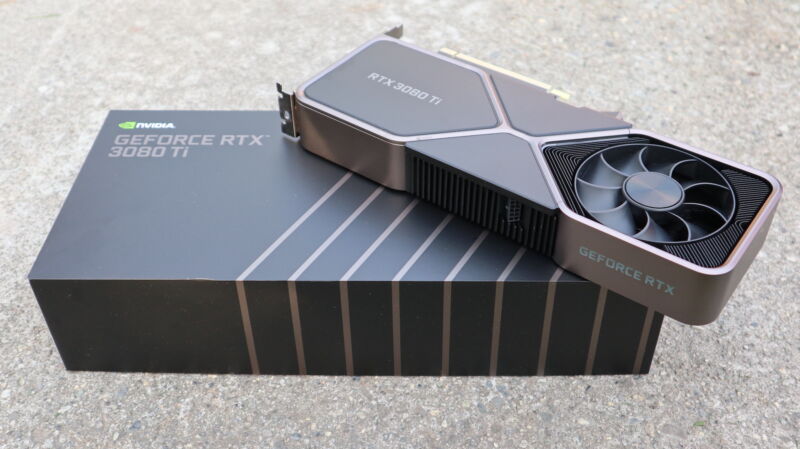
How quickly things change: A year ago, it was nearly impossible to buy a GeForce GPU for its intended retail price. Now, the company has the opposite problem. Nvidia CEO Jensen Huang said during the company's Q2 2023 earnings call yesterday that the company is dealing with "excess inventory" of RTX 3000-series GPUs ahead of its next-gen RTX 4000 series release later this year.
To deal with this, according to Huang, Nvidia will reduce the number of GPUs it sells to manufacturers of graphics cards and laptops so that those manufacturers can clear out their existing inventory. Huang also says Nvidia has "instituted programs to price position our current products to prepare for next-generation products." When translated from C-suite to English, this means the company will be cutting the prices of current-generation GPUs to make more room for next-generation ones. Those price cuts should theoretically be passed along to consumers somehow, though that will be up to Nvidia's partners.
Nvidia announced earlier this month that it would be missing its quarterly projections by $1.4 billion, mainly due to decreased demand for its gaming GPUs. Huang said that "sell-through" of GPUs, or the number of cards being sold to users, had still "increased 70 percent since pre-COVID," though the company still expects year-over-year revenue from GPUs to decline next quarter.
Demand for PCs and PC components is mostly down across the board, partly because of recession fears and partly because people bought so much PC hardware early in the pandemic. Nvidia is also selling fewer GPUs to cryptocurrency miners, both because of falling prices and Ethereum's long-anticipated transition away from GPU mining. Nvidia CFO Colette Kress insisted that the company is "unable to accurately quantify the extent to which reduced crypto mining contributed to the decline in gaming demand," notably because Nvidia has gotten into trouble with the SEC for obscuring the number of GPUs it was selling to cryptocurrency miners in the past.
The upshot for consumers is that new and used GPU prices should continue to fall, as they have been for most of the year, and that we can expect at least a few RTX 3000-series cards to hang around well after the launch of the RTX 4000 series. People who want the best performance they can get should probably wait for those cards to launch (AMD and Intel are planning new CPU launches soon, too). However, it's the best time in years to overhaul or replace your gaming desktop for anyone still getting by with older GPUs and wanting to upgrade.
reader comments
277